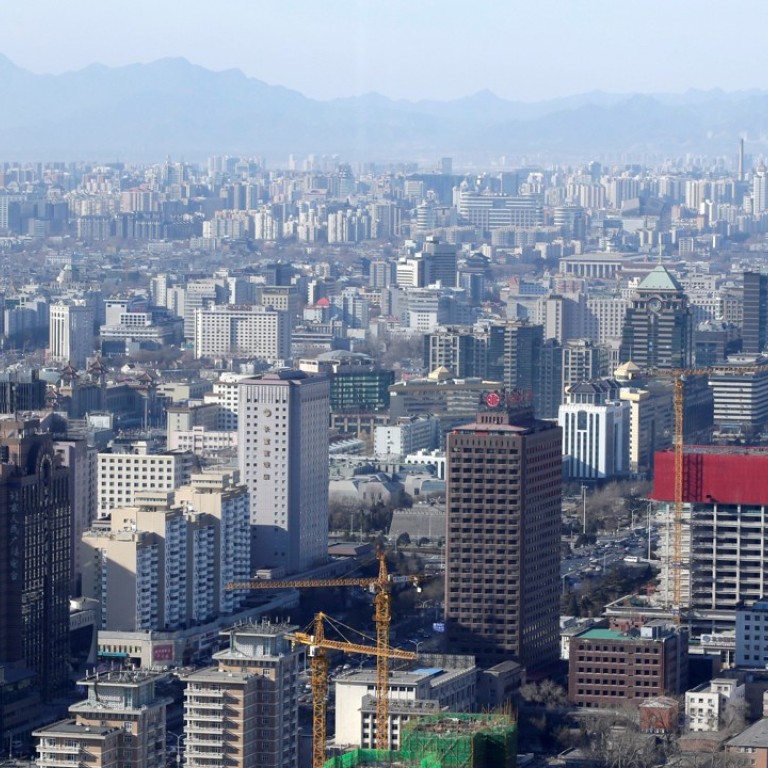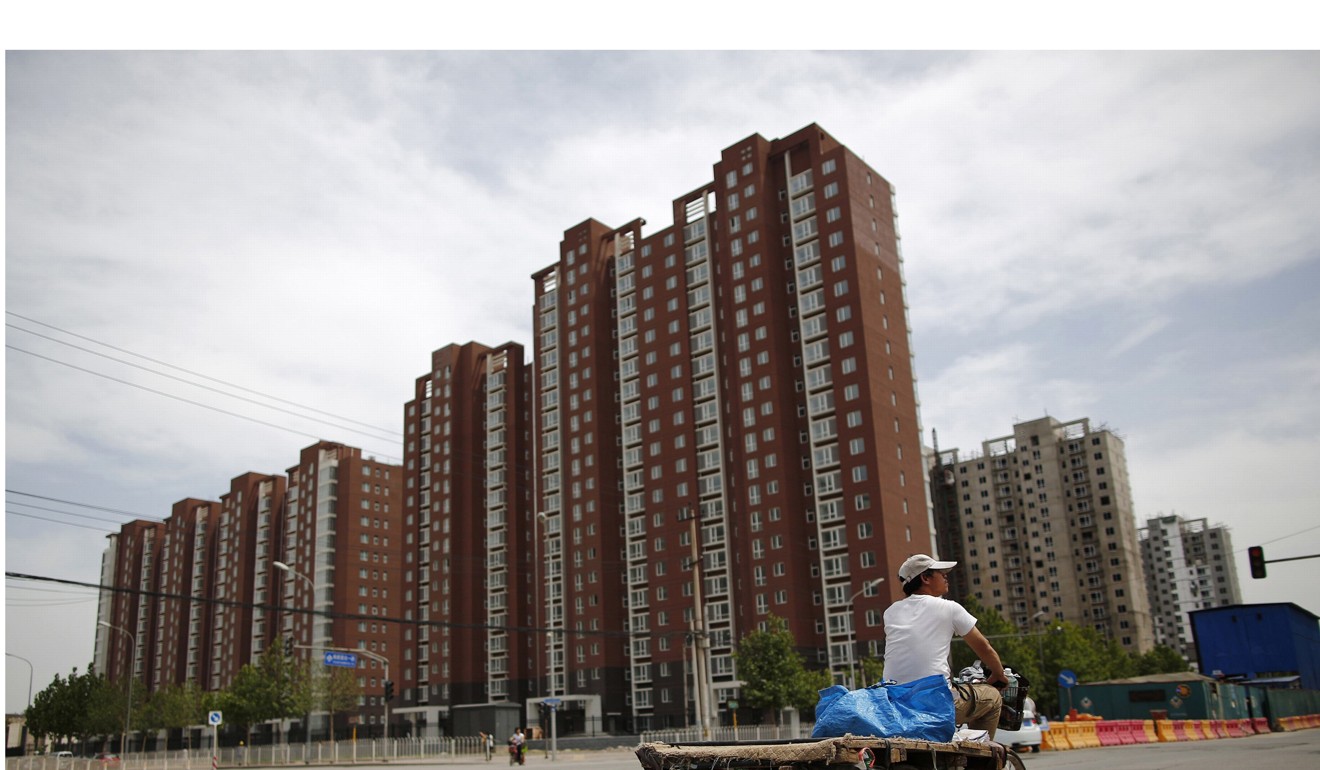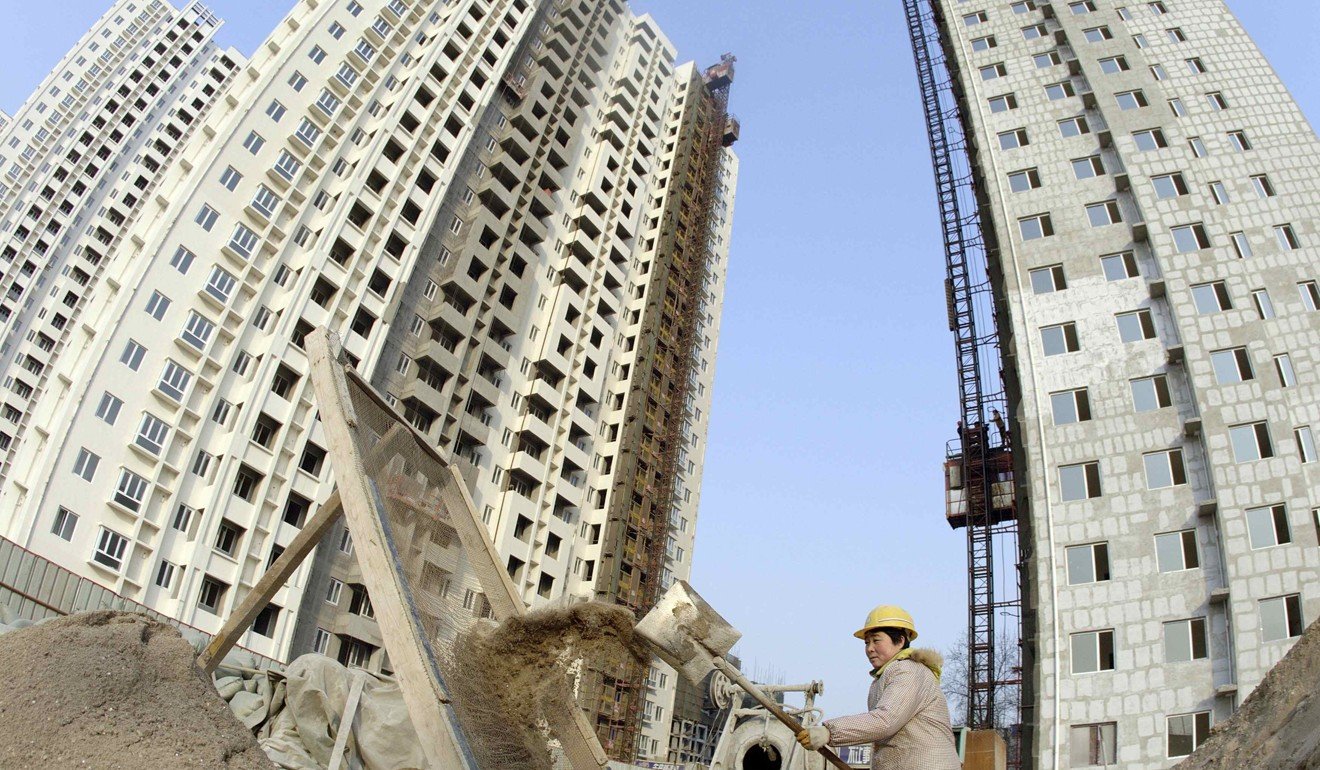
Little-known Fujian developer Thaihot snapping up prime tracts of Beijing land
Fearless acquisition strategy by company’s chairman Huang Qisen has sparked both fear and admiration among industry peers. But its shares have rallied 53pc in the past month despite heightened concern over its debt ratio and cash flow
Shares in Chinese developer Thaihot Group rallied to their daily upper limit again on Thursday, after it took full control of a prime plot of land in Beijing – taking many of its industry peers by surprise at a time when most continue to be increasingly cautious in what’s continues to be a distinctly cool market in the city.
The Fujian province-based firm, headed by chairman Huang Qisen, has now bought Overseas Chinese Town (OCT) Enterprises’ 51 per cent share in a project company – created to develop the site originally by three companies – for 10.86 billion yuan (US$1.67), giving its full ownership. That is a 30 per cent premium over the original price.
It bought a 49 per cent share in the project – in southwest Beijing’s Fengtai district – last August for 1.5 billion yuan, besides lending 9.36 billion yuan to the project as part of the deal.
The firm appears to have emerged from nowhere with funds to spend, targeted especially at the land in the capital, and is now regarded as one of the country’s most acquisitive developers.
Huang vowed in a late December to double its property sales in 2018 to 200 billion yuan, and the company reveals in its filing on the purchase that it has 36 projects planned, on a land bank which now sits at some 7.93 million square metres.

Back in November 2015, OCT was set to team up with China Resources Land and China Merchants Land to buy the land for a record 8.34 billion yuan, becoming so called “land kings” in the process, a name given at the time to developers who were freely snapping up land at record prices.
But just two days later, however, CR land and CM Land withdrew from the deal, doubting its commercial viability, and OCT has since been left financing the purchase since.
Thaihot’s shares hit their 10 per cent rise limit Thursday, meaning they have risen 53 per cent over the past month, and 64.7 per cent from July.
The 240,000 square metre Fengtai site requires 102,000 square metre of space to be dedicated to education, transport and public rental homes, meaning that Thaihot has paid 78,700 yuan per square metre of saleable area.
An executive with another large developer, familiar with the project, said Thaihot would need to earn over 95,000 yuan per square metre, just to earn a margin of 15 per cent.
Guo Yi, chief marketing officer at Yahao Real Estate, said, however, the great advantage of the plot is it is free from current, ever-tightening new rules, including a maximum price cap, and that no less than 70 per cent of acquired areas have to be dedicated to homes smaller than 90 square metres.
“If Thaihot is prepared to swallow that [95,000 yuan per square metre], it clearly has good reason,” she said.
Under a spate of harsh curbing measures, Beijing’s home market has slowed considerably with new home sale volumes slumping by a half since 2016, and most industry insiders are no more optimistic about this year’s prospect.
But Thaihot’s bullish approach continues to defy the market. It was Beijing’s second-largest developer in terms of contracted sales last year, selling 24 billion yuan worth of properties, more than a quarter of its national total.

Huang’s lofty sales target has been the talk of the market in recent weeks, and driven its shares to their maximum 10 per cent rise for two days running now, prompted a Shenzhen Stock Exchange inquiry letter to be issued to its executives, questioning the business rationale behind the moves.
Industry observers say they are concerned about its debt ratio and cash flow, with the former climbing steadily to 85.5 per cent by the third quarter, compared with the 65 per cent average for listed developers.
Huang has defended the company’s balance sheet by saying Thaihot’s land stock was bought at low prices, 90 per cent of which since 2016 were via acquisition, instead of by inflated public auctions. He clams he has paid half or even a third of the cost of what plots might have gone for under the hammer.
Its largest shareholder, Tahoe Investment, meanwhile, had pledged almost all its shares to address the deficit in the company’s cash flow (its operating income is less than operating expenses), which, of course carries considerable risk if there is any major price correction.

